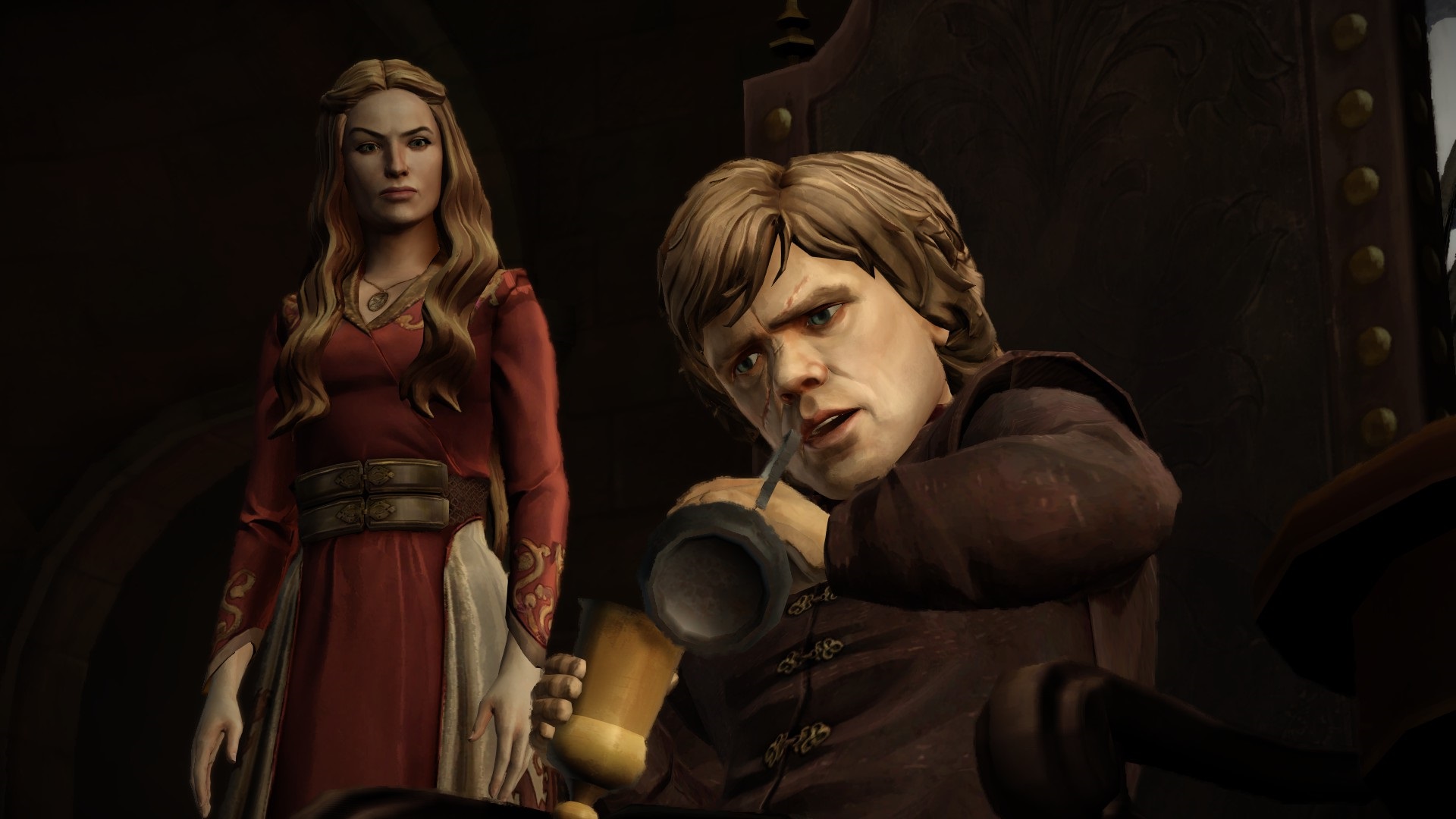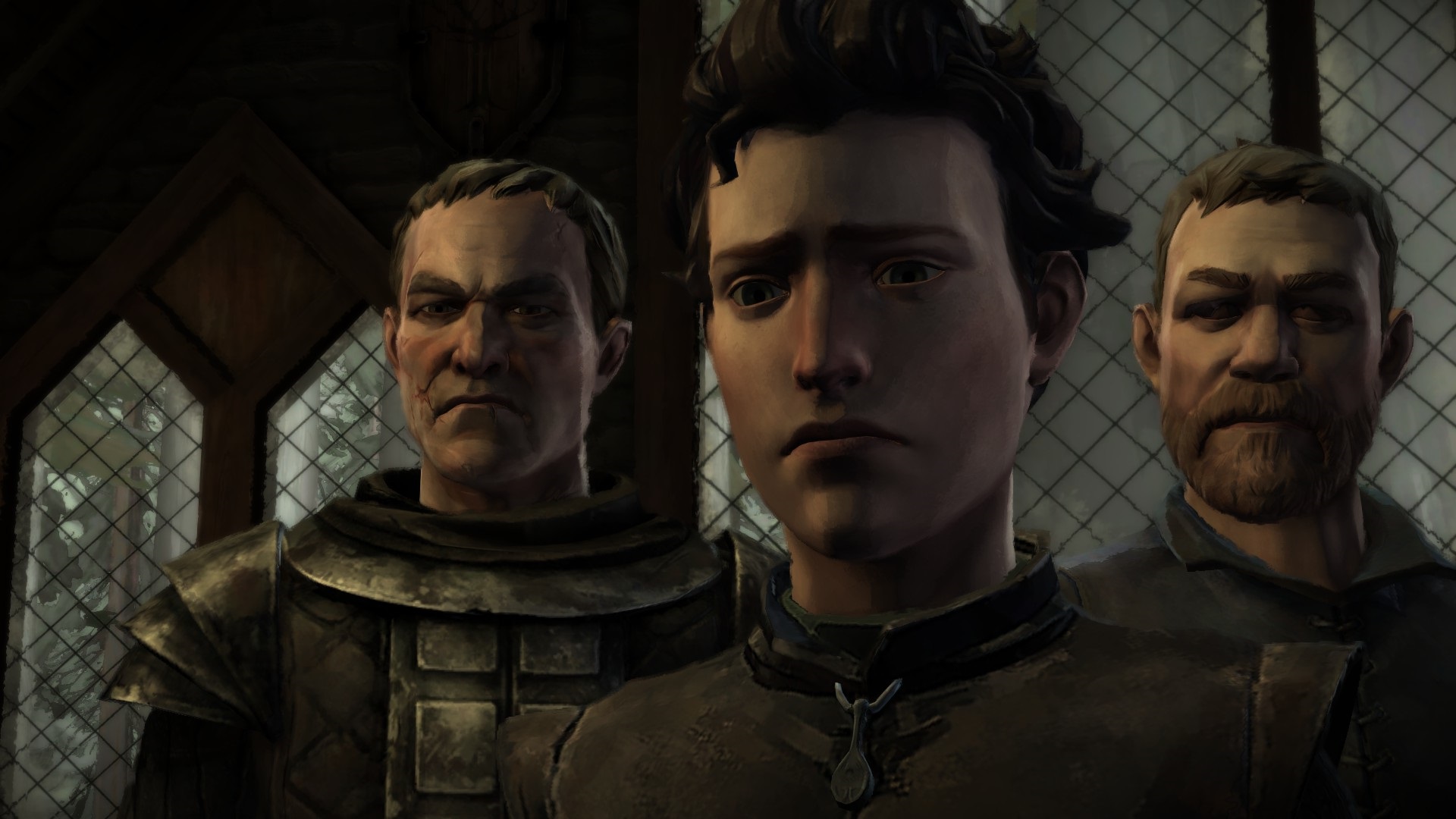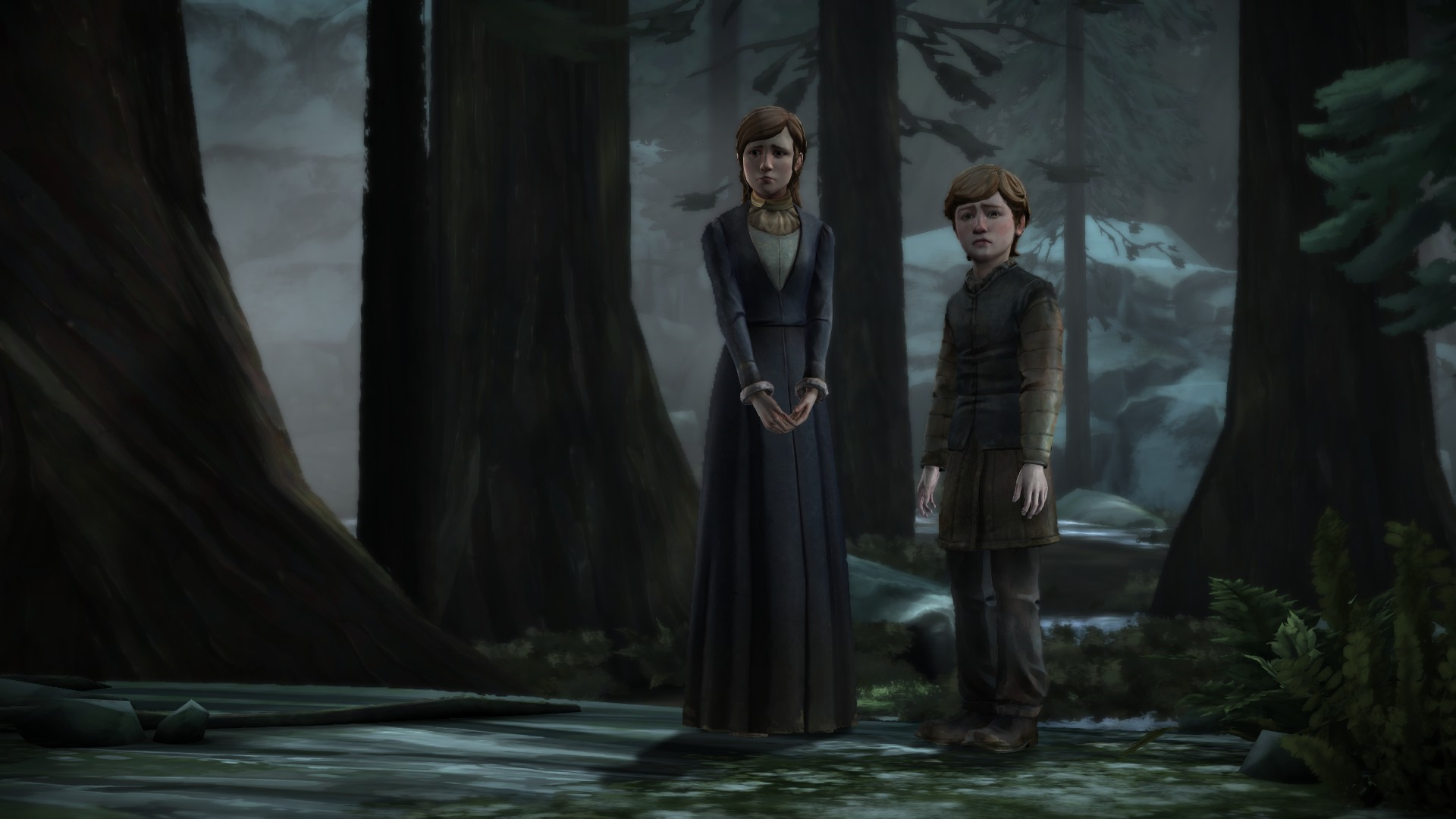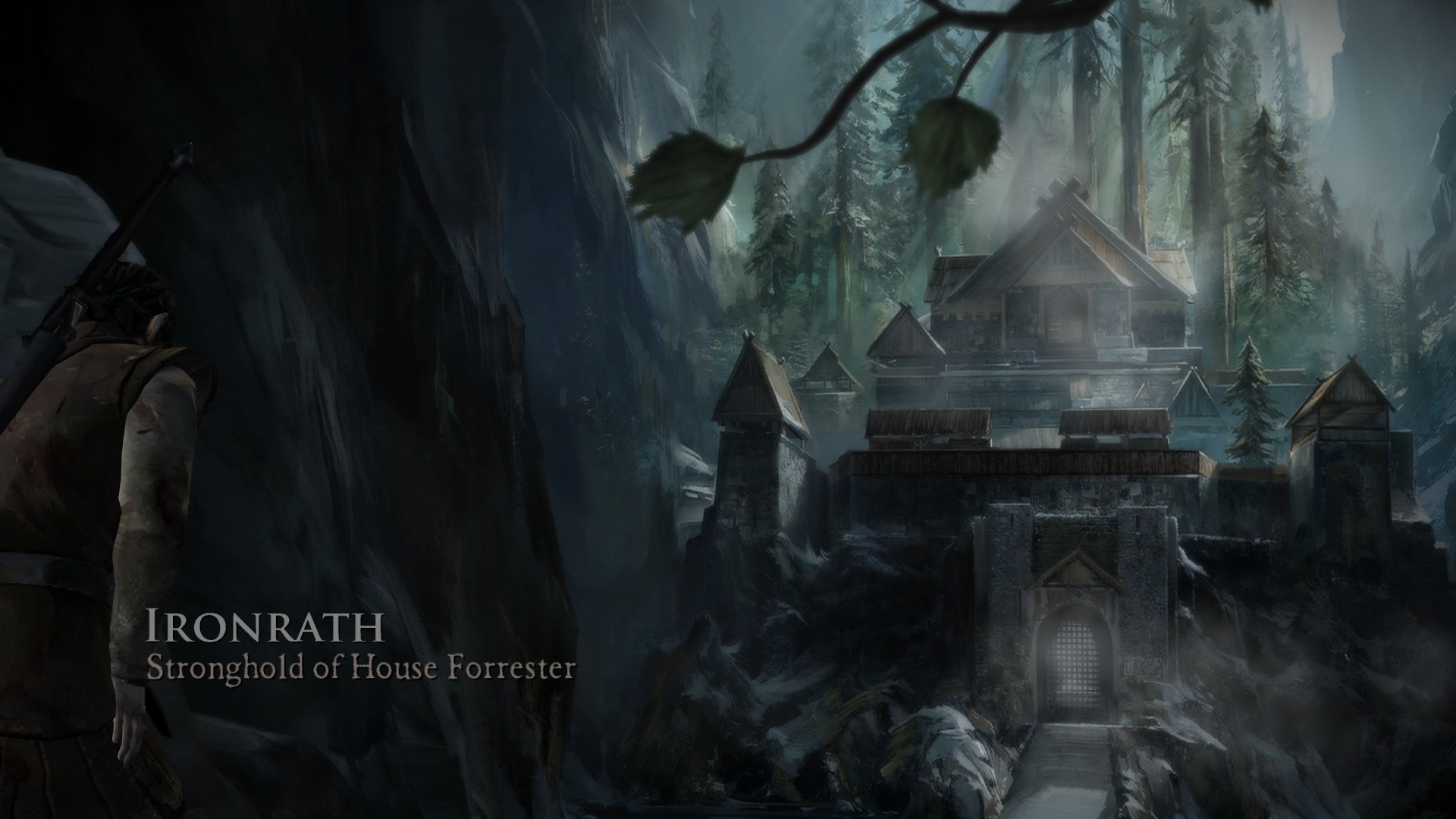Game of Thrones: Episode One — Iron From Ice review

You can’t buy Telltale’s adventures one episode at a time on PC; you’re buying all six in the season for $30/£23—so it doesn’t make much sense for us to score each one individually. We’ll review and score the whole package when all the episodes have been released, while individual episode reviews like this one will be unscored criticism.
You'll find a few Game of Thrones spoilers in here, as the game takes place around the fourth season of the HBO show. If you don't want any spoilers at all, don't read this. Go read the books instead.
Lurk in a forum in the wake of a Game of Thrones episode (or, yes, the release of one of George R.R. Martin's books), and you'll find that everyone "knows" precisely why this or that poor sap lost his head. Eddard was too caught up in misplaced ideas of honor, they say, and Robb had his priorities wrong. But Game of Thrones: Iron From Ice shows that such decisions aren't so easy when you're forced to act in the heat of the moment. They're harder when you're personally involved and not an outsider looking in. And Telltale relays this lesson so effectively that my decisions left me gaping at the screen as the credits rolled, horrified by how royally I'd fouled up everyone's lives. Not even Ned's death had such an impact.
If you don't know who Ned is, there's a good chance you'll have a hard time finding your feet here. Iron From Ice sees Telltale's writers in top form, but it unabashedly assumes you've watched HBO’s Game of Thrones show or read the books closely enough to know why being sent to The Wall is such a bummer. Die, and the words "Valar Morghulis" dominate the screen with no translation or explanation. Elsewhere, the words "The Red Wedding" float in the lower left mere seconds in, identifying the scene before the events that gave it that name even take place.

But thankfully this isn't the story of the Starks directly; it's the tale of the Forresters, former bannermen of the Starks with lands coveted by the crown because their trees produce some really hard wood. They're a likable bunch (with a sigil that looks suspiciously like the white tree of Gondor), and Iron From Ice honors Martin's signature shifting points of view by focusing on three people associated with the house. Alas, it sticks too closely to the template laid down by the Starks. Mira Forrester, eldest daughter and handmaiden to Margaery Tyrell in King's Landing, endures ordeals that almost mirror those of Sansa Stark. Echoes of both Bran and Robb Stark resound in Ethan, the new lord of House Forrester; and I found myself thinking his mother was Catelyn Stark at least twice. Gared Tuttle, Forrester squire and pig farming alumnus, is the most original of the trio, but even he has a touch too much Jon Snow in his DNA.
Iron From Ice follows the same Telltale model established by games like The Walking Dead and The Wolf Among us, in that I spent most of my time moving my mouse around looking for interactive objects, dodging danger with directional keys, and affecting the storyline with decisions selected at key points in the dialogue. But talk here is uncommonly prominent for Telltale. I like Gared partly because his personality's the least derivative, but he's also the only one with scenes involving swinging swords with the A and D keys and helping maggots cozy up in open wounds. Ethan and Mira, by contrast, spend most of their time standing still and yakking, which means I spent most of my time with them clicking responses. But yakking, of course, is arguably more important in the game of thrones than swinging around long sticks of steel, as Margaery tells Mira in her own smirky way. All the same, it doesn't make for terribly exciting gameplay.

Mira's King's Landing scenes in particular drag a bit as a result, but Telltale makes such inactive scenes work by placing the volatile Cersei Lannister and Ramsay Snow opposite our woodsman heroes. Both are deeply suspicious, psychotic fiends. Both see treachery in every syllable. Clicking on each prompt thus feels like dancing on a silken thread they hold above a chasm, as failing to stay in their good humors almost certainly means death and worse.
It's a shame that depth of character doesn't carry over to the secondary folks hanging around Ironrath, the house seat of the Forresters. At one point I found myself needing to choose between two men for advice, and they were so ludicrously different from each other than they seemed to have stepped out of a political cartoon.
The biggest gaming news, reviews and hardware deals
Keep up to date with the most important stories and the best deals, as picked by the PC Gamer team.
Ironrath itself does much to make up for such small shortcomings. The current HBO series has nothing like it: a land of dark, towering conifers hiding vaguely Nordic stave buildings, all presented in a painterly art style (that admittedly tries on my PC performance at times). It's as though the writers envisioned it after a day of enjoying both Game of Thrones and The Banner Saga. What's more, brief references suggest that something far more fantastical than snarks and grumpkins wait in the woods beyond.

It's the first Telltale game that I really want to replay. With all the lording about going on, the choices here have far more wider consequences than they did back when we were trying to keep Kenny from being a punk back in The Walking Dead. With so many threads connected to you, things fall apart within seconds. Certain parts could be better, but Telltale knows what it's doing here, and nothing proves the Forresters belong in the canon so well as the classic Martin shock that caps the whole experience. Can I avoid it? I want to find out, and it's a good thing I'll have plenty of time—after all, winter is coming.

